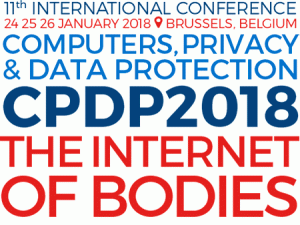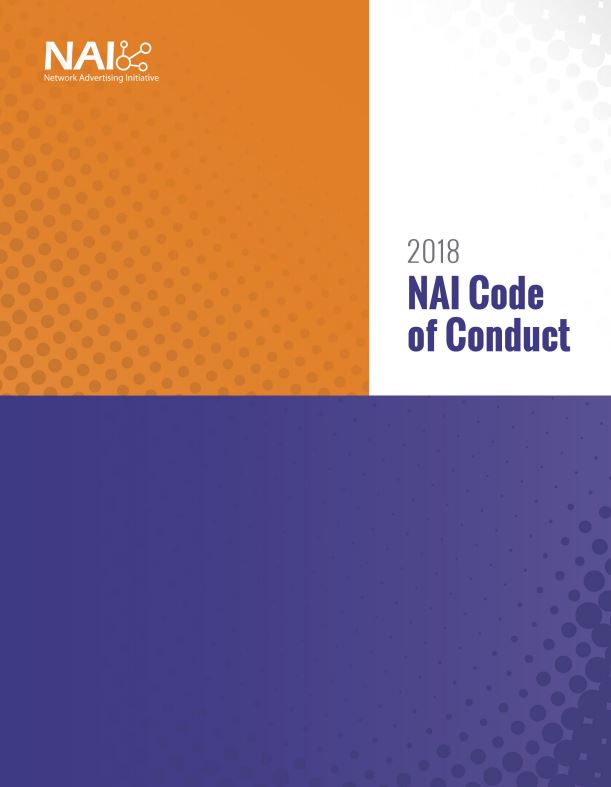
Ensuring School Safety While Also Protecting Privacy: FPF Testimony Before the Federal Commission on School Safety
Amelia Vance, FPF’s Director of Education Privacy, spoke today at the Federal Commission on Student Safety’s Listening Session. She asked that any Commission recommendations include the need for privacy “guardrails” around school safety measures to ensure that student privacy and equity are protected.

Code of Conduct / Anti-harassment Policy
In recognition of FPF’s dedication to providing a respectful and professional conference, forum, email listserves, and community experience for everyone regardless of gender, sexual orientation, disability, physical appearance, body size, race, religion, or political affiliation, FPF does not tolerate harassment of participants in any form. Participants or others involved in activities who violate this anti-harassment […]

Future of Privacy Forum Launches Fellowship in Memory of Privacy Hero Elise Berkower
Washington, DC – Today, the Future of Privacy Forum announced the launch of a new fellowship in memory of Elise Berkower. Elise was a senior privacy executive at global measurement and data analytics company Nielsen for nearly a decade and was a valued, longtime member of the FPF Advisory Board. FPF graciously acknowledges the Berkower Family and the Nielsen Foundation as founding sponsors of the Elise Berkower Memorial Fellowship.

Facebook and Cambridge Analytica: Statement by Jules Polonetsky, FPF CEO
We are pleased to see Facebook’s response, but are looking forward to understanding how to best address the broader issues for all stakeholders. These issues are important to discuss – they are not going away.

Taming The Golem: Challenges of Ethical Algorithmic Decision-Making
This article examines the potential for bias and discrimination in automated algorithmic decision-making. As a group of commentators recently asserted, “[t]he accountability mechanisms and legal standards that govern such decision processes have not kept pace with technology.” Yet this article rejects an approach that depicts every algorithmic process as a “black box” that is inevitably plagued by bias and potential injustice.

The Top 10 (& Federal Actions): Student Privacy News (November 2017-February 2018)
The Future of Privacy Forum tracks student privacy news very closely, and shares relevant news stories with our newsletter subscribers. Approximately every month, we post “The Top 10,” a blog with our top student privacy stories.

Seeing the Big Picture on Smart TVs and Smart Home Tech
CES 2018 brought to light many exciting advancements in consumer technologies. Without a doubt, Smart TVs, Smart Homes, and voice assistants were dominant: LG has a TV that rolls up like a poster; Philips introduced a Google Assistant-enabled TV is designed for the kitchen; and Samsung revealed its new line of refrigerators, TVs, and other home devices powered by Bixby, their intelligent voice assistant.

From cross-border transfers to privacy engineering, check out all panels and events FPF will be a part of at CPDP2018
Computers Privacy and Data Protection conference (CPDP) kicks off this week in Brussels, and the theme this year is “The Internet of Bodies”. The conference will gather 400 speakers for 80 panels to set the stage for the privacy and data protection conversation in Europe for 2018. And this is such an important year for data protection – not only the General Data Protection Regulation becomes applicable in May, but also the text of the new ePrivacy Regulation will likely be finalized.

Privacy Papers 2017
The winners of the 2017 PPPM Award are: Artificial Intelligence Policy: A Primer and Roadmap by Ryan Calo, Associate Professor of Law, University of Washington Abstract: Talk of artificial intelligence is everywhere. People marvel at the capacity of machines to translate any language and master any game. Others condemn the use of secret algorithms to […]

NAI Combines Web, Mobile, and Cross-Device Tracking Rules for 2018
The Network Advertising Initiative (NAI) released its 2018 Code of Conduct yesterday, consolidating the rules for online and mobile behavioral advertising (interest-based advertising). NAI, a non-profit organization in Washington, DC, is the leading self-regulatory association for digital advertising, with over 100 members and a formalized internal review mechanism.
